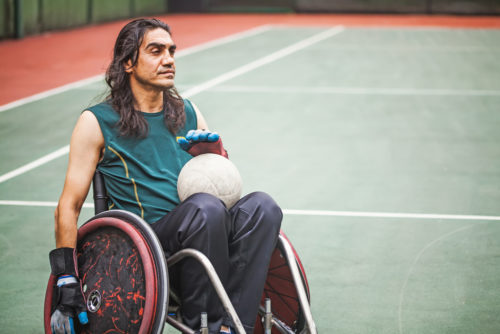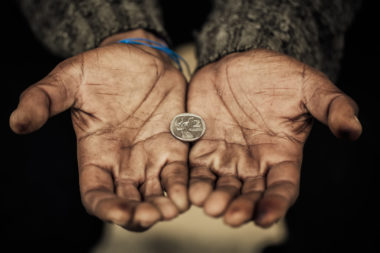Being active, getting outside in the sun and fresh air, and having fun is something everybody should do. It’s healthy, entertaining, and can help people make connections with each other. From children to grandparents, people should be going outside and playing together.
Yet, for individuals with disabilities, many might feel like they can’t go outside, that they can’t be involved with team sports or just go for a stroll. However, this isn’t true at all. There are many solutions for people with varying disabilities to allow them to exercise, recreate, or otherwise have fun with their peers.
Table of Contents
What is Adaptive Recreation?
Also known as “inclusive recreation,” adaptive recreation is when people with disabilities are given the opportunity to participate or be included in recreational activities. Activities can be challenging for people with disabilities, physical or mental, but adaptive recreation enables them to get involved. This can mean changing the rules for a game, making an activity more accessible to people in wheelchairs or with other physical disabilities, or planning activities that work for a variety of people.
Adaptive recreation is an important facet of our society, as it provides people with disabilities opportunities to have new experiences. Recreation can include things like: playing sports and games, hiking, whitewater rafting, going swimming, biking, attending trivia night, and more.
For people with disabilities, adaptive recreation can help them improve their quality of life and help them feel like they have a place in their local community.
Adaptive Sports
A major part of adaptive recreation is having sport activities accessible to people with disabilities. Sports are a great way to get exercise, meet new people, find a place in a group of peers, and feel a sense of achievement. People with disabilities are no different, but depending on the sport, there may be barriers unintentionally preventing them from participating.
Many communities and institutions can make sports available for those with disabilities by adapting current rules to be more inclusive, creating new sports that are more accessible, and promoting adaptive sport leagues. The idea is not to eliminate the challenge, physicality, or even competitiveness of sports, but to simply enable more people to participate on as equitable terms as possible. This can help reduce stigmas, improve the health and quality of life for those with disabilities, and help bring people together.
Where Can I Find Adaptive Recreation Services?
Many institutions are taking steps to provide adaptive recreation opportunities to their communities, you just have to look for them. A good place to start is with your local Parks and Recreation Department and see what they offer. Many provide programs filled with adaptive recreation, ranging from making activities wheelchair accessible, to creating programs entirely for people with specific disabilities. Some parks departments even offer and coordinate help with transportation to and from these events.
Another good place to investigate is with a nearby university. Often, schools have resources to create programs for their students with disabilities that they also open up to the public. This can include: sports, music programs, art, and more.
Talk with other people who share disabilities, either one-on-one or as part of a peer counseling group. They might know of an organization that casually pursues adaptive recreation that you can join.
To find adaptive sports in your area, contact your local YMCA, community center, or parks department. Many communities have some form of adaptive sports, but are always looking to grow their programs. Their biggest challenges revolve around awareness and local demand to keep the programs running. If you can’t find an existing league or program that interests you, or which accommodates a specific condition, working with the same groups listed above can be a great way to get something started. New sports, organizations, teams, and events are happening all the time because someone like you decided to make them happen.
What is Therapeutic Recreation?
By blending the joys of recreation with a more clinical approach, it’s possible to provide even more benefits to people with disabilities. By assessing the needs created by a disability, and then finding a recreation that can help fill that need, people can enjoy their time while improving their life. For example, a person in a wheelchair might find it difficult to stay active physically, so by joining a wheelchair basketball league, they get exercise while having fun.
Therapeutic recreation isn’t just exercise-based, but can include music, creating art, and other forms of recreation. The important part is using something a person can enjoy with improving their life.
Where can I Find Therapeutic Recreation?
If you are looking for therapeutic recreation, first consult with your doctor or therapist. They’ll be able to best guide you on what kinds of recreation to pursue, the benefits it can have, and even have resources for who provides the recreation they suggest.
After that, investigate with your local Parks and Recreation Department to see what kind of activities they already, or could potentially, provide that match up with your therapeutic needs. Many parks departments offer a variety of activities, not just physical ones, that could fill what you want to do.
Finally, some nonprofits and private businesses can provide therapeutic recreation. These typically will cost you, and some that push the more clinical side of therapeutic recreation could even bill to health insurance.
When it comes to finding accessible recreation, there are usually a lot of options available locally. If that isn’t the case, don’t be afraid to take charge and start your own. Likely, there are others looking for adaptive recreation and are disappointed by your local community’s lack of them. Get your local Parks and Recreation Department aware and involved, and participate! Help plan, host, and support events you want to see.
Image Source: https://depositphotos.com/





